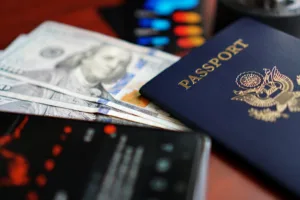
With the rise of online security measures, one-time passwords (OTPs) have become a standard for authentication. However, not all users want to share their personal phone numbers for verification. Temporary phone number services offer a solution, but they also introduce security considerations. This article examines nine reliable platforms for receiving OTPs without a personal number, their technical implementations, and the implications for security professionals.
Why Temporary Numbers Matter for Security Testing
Temporary phone numbers serve legitimate purposes, such as testing applications or verifying services without exposing personal data. For security teams, these tools can help evaluate the robustness of OTP-based authentication systems. However, they also present risks if abused by malicious actors to bypass security controls. Understanding these services is essential for both offensive and defensive security strategies.
Several platforms provide disposable numbers, but reliability varies. Some services offer free numbers with limitations, while others require minimal registration. Below is a breakdown of the most effective options based on functionality and regional availability.
Top Websites for Temporary OTP Numbers
The following platforms are widely used for receiving SMS verification codes without a personal phone number. Each has distinct features that cater to different use cases, from quick verifications to long-term testing.
| Service | Key Features | Supported Regions |
|---|---|---|
| ONLINE-SMS.ORG | No login required, real-time messages | USA, UK, France, Canada |
| Receive-SMS.com | Public and private numbers, OTP support | UK, Sweden |
| TextNow | Free US/Canada numbers, call support | USA, Canada |
| SMS-MAN | Private numbers for WhatsApp/Telegram | Global |
These services are frequently updated, but some may experience downtime or blocking by platforms enforcing stricter verification policies. Security teams should monitor these trends when assessing authentication bypass risks.
Mobile Apps for Temporary Numbers
For on-the-go verification, mobile apps provide an alternative to web-based services. Two notable Android applications include:
- Receive SMS Online – No registration needed, supports OTP verification.
- Receive SMS Online Temporary – Disposable US/Canada numbers compatible with WhatsApp and Facebook.
While convenient, apps may require permissions that introduce privacy concerns. Security professionals should evaluate these risks before recommending them for testing.
Security Implications for Organizations
Temporary number services can be exploited to bypass multi-factor authentication (MFA) if not properly secured. Organizations should consider the following mitigations:
- Implement rate-limiting on OTP requests to prevent brute-force attacks.
- Monitor for repeated verification attempts from known temporary number ranges.
- Use hardware tokens or app-based authentication where feasible.
Red teams can leverage these services to test MFA resilience, while blue teams should monitor for their misuse in credential-stuffing attacks.
Conclusion
Temporary phone number services offer flexibility but also pose security challenges. By understanding their capabilities and limitations, security teams can better defend against abuse while using them effectively in testing scenarios. Organizations should continuously assess their authentication mechanisms to stay ahead of evolving threats.
References
- “Receive SMS Online Without a Phone Number,” Dr.Fone Blog, 2024.
- “Temporary Numbers for SMS Verification,” Appleismo, 2024.
- “Receive SMS Online (Android App),” Google Play Store, 2025.
- “Reddit Discussion on Virtual Numbers for OTP,” r/privacy, 2025.






